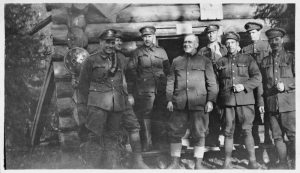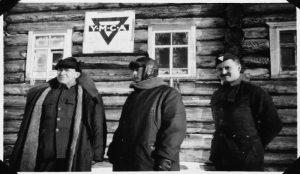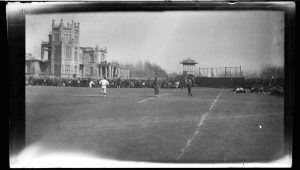Exhibit Home | The YMCA in Russia | The YMCA in China | Travels & Observations | Credits & Sources
Russia After the War

Working In Russia
The YMCA’s work in Archangel and Vladivostok was varied. In the cities, the Y provided many types of activities, including English classes and garden clubs. Lewis focused on teaching physical education to boys, including baseball and track and field. Lewis spent some of his time recording the experiences of Russian and American soldiers in Northern Russia. A long letter to his wife shortly after leaving Archangel for Europe briefly shows the activities of American and British military groups brought in to fight the Bolshevik army and details how Russian soldiers were treated by British commanders after an attempted mutiny. Additional letters during this time tell his wife about rumors, political changes, and other local information that was not being reported by American newspapers.

They butchered without mercy. Even the Korean school school house was burned, and no one knows how many Koreans were killed. And then they [the Japanese military] send dispatches to America that the Russians attacked them. How outrageous.– letter to Mildred Lewis, April 24, 1920
Not long after this attack, Lewis was reassigned to Harbin, Manchuria, which was further away from the areas under dispute between the Russians and the Japanese.
